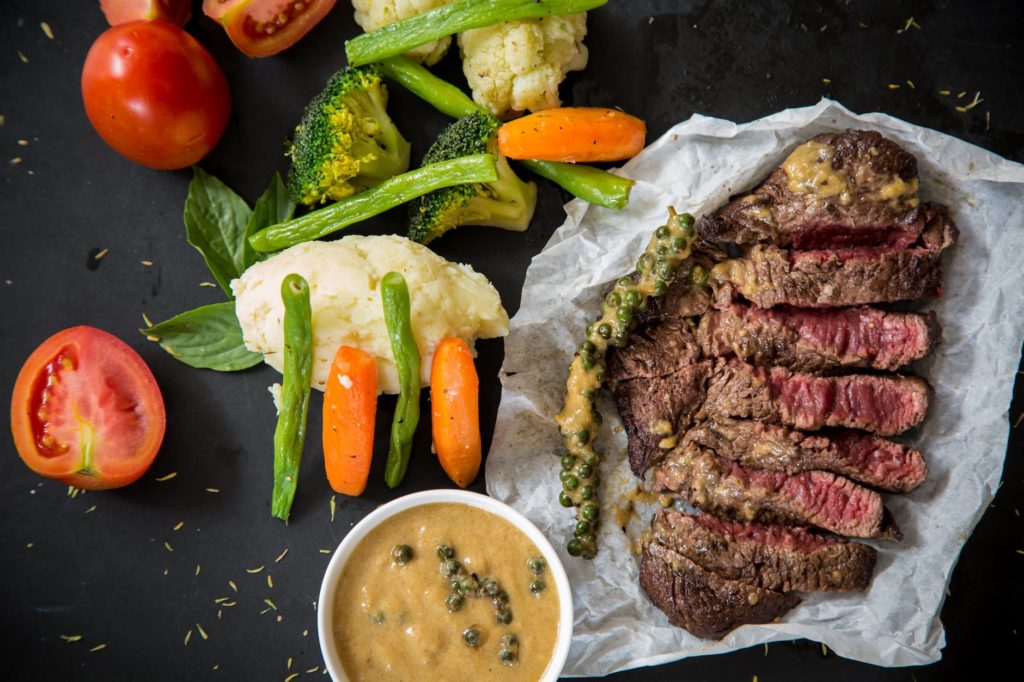But What if Your Sweetheart Loves Meat
The vegetarian culture is one that fosters a certain “snootiness” because of our insistence on pure foods. It is also easy to get a superior attitude because vegetarian living is clearly a superior way to live from a health perspective and because so often our reasons for becoming a vegetarian are grounded in moral, ethical, or religious values. And this is all well and good as long as you are functioning within the vegetarian community exclusively.
But what if your sweetheart is a meat eater? If the one you are dating, engaged to, or even married to is not a vegetarian, that can lead to some pretty delicate moments. The last thing the vegetarian movement is about is hostility. So we have to have some guidelines on how to live in peace and harmony if your romantic partner has not joined you in your vegetarian lifestyle.
Of course, one resolution is for your sweetheart to become a vegetarian with you. You could go with the argument of, “Well if you loved me you would give up meat.” But forcing someone to join the vegetarian community out of guilt is a terrible reason to make that change in life. Your sweetheart will just resent giving up a food he or she loves and will probably cheat and eat meat when not around you. That kind of tension, resentment, and deception is no grounds for a long-term love affair.
Intimate Relationship
A better way is to come to terms with your differences, find ways to live with them, and then see if, down the road, your sweetheart might convert of his own free will. The first step, as is true of any conflict in an intimate relationship, is to talk about your differences openly. Sit down and talk about where each of you is on this issue. Agree to disagree. But also agree to find compromises and not hold the other in contempt or mock the other for the life choices he or she has made. By reaching a loving agreement, each of you can allow the other to be who he or she is and the romance can continue as the dietary dispute is resolved peacefully.
Together you can look for restaurants that offer both vegetarian dishes and meat dishes so each of you can get what you want. Now you don’t have to go to a restaurant that shouts in its advertising “We Serve Vegetarians!” All a good restaurant needs is a few good menu entries that are meatless and you can find what you want while your sweetheart enjoys a meat dish. Most good restaurants offer a tempting salad offering that you can customize so any meat, bacon bits, boiled eggs, or even cheese are left out. By working together to build a good list of restaurants both of you can enjoy, you have a compromise for date nights that will last a long time.
Finding ways for both of you to enjoy your diet of choice is a good long-term step. But your loved one may have a misconception that vegetarian food can’t taste good. So make a deal that he or she might try it one night. Then you can put your best foot forward by preparing a sumptuous vegetarian meal that nobody can resist. But be aware that if you do try to make such a deal, you might have to agree to let your sweetheart try to convert you back to the meat-eating world with a sumptuous homemade meat-based meal. If that is not ok with you, don’t make the deal.
Above all, don’t mock or look upon your sweetheart’s choice of diet with disdain or disgust. Don’t make the “eww” face each time your date has a hamburger or a hot dog. Come to the point that you can live with meat eaters and not feel repulsed when others eat the foods you don’t approve of. After all, you would not your date to make the “eww” face when you had a tofu burger or a big plate of steaming vegetables instead of meat. So treat each other with respect and love. Over time that approach will result in the best long-term love affair and maybe even see you come to a time when he or she sees the light and joins you in the joys of vegetarianism.
DISCLAIMER:
This information is not presented by a medical practitioner and is for educational and informational purposes only. The content is not intended to be a substitute for professional medical advice, diagnosis, or treatment. Always seek the advice of your physician or other qualified healthcare providers with any questions you may have regarding a medical condition. Never disregard professional medical advice or delay in seeking it because of something you have read.
Since natural and/or dietary supplements are not FDA-approved they must be accompanied by a two-part disclaimer on the product label: that the statement has not been evaluated by FDA and that the product is not intended to “diagnose, treat, cure or prevent any disease.”





